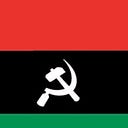The Capitol Hill Autonomous Zone and What Maoists Can Learn from It
The Capitol Hill Autonomous Zone (C.H.A.Z) has aroused the imagination and attention of the Left worldwide. Directly inspired by the Minneapolis Uprising and the existence of a de-facto people’s “autonomous zone” around the burnt out police precinct, this once again shows how the New Afrikan People’s Liberation Struggle continues to produce the most advanced theory and praxis in the country. There have been people’s gardens popping up, the work of New Afrikan farmers who have been reclaiming space for the purpose of food autonomy and self-sufficiency, mutual aid networks set up, and provision of healthcare, food, and other necessary support for the houseless. The CHAZ did not spring out of the head of some revisionist “Party” hack, nor from the pages of some anarchist bible, but from the organic struggle of the masses. This is a good thing. But, being Maoists, we must not fail to criticize erroneous trends and politics that are often glossed over by many, even our own tendency, out of a rightful disdain for the overly theoretical devoid of practice.
The CHAZ is good. But, is it a truly autonomous zone? No. Appending a label to something does not make it so. If the police, reactionaries, and fascists can enter your territory and leave alive, it is not truly autonomous, or at least the most advanced elements are not in control. Speaking of control, who is leadership? Anarchists praise the horizontal model for its supposed “inherent” justice and the prevention of the rise of an abusive hierarchy, but as Communists we have seen the failure and collapse of projects organized along this model. Politics is politics, and we know that although there is not a formal, open, recognized leadership (in practice, a good thing — state repressive forces look for “leaders” to make an example of), there are those in anarchist circles who carry “clout”, whether it be due to successfully beating a case, knowing the right people, having access to ready funds or knowing those who have access to them, relationship ties with important people in the movement, or personal charisma. This is a liberal, bourgeois, individualist method of organizing and it is also a precarious one — if a project can be wrecked by an important sponsor withdrawing their support or a romantic breakup and the subsequent gossip and backstabbing, it’s not politically viable. What we see in “horizontal” movements is in informal hierarchy in practice.
Secondly, let’s look at the location of the CHAZ. Maoists believe that we have to construct/conquer/expand our base areas in peripheral locations where the government has withdrawn, or was never present in the first place. In the United States, this means Rust Belt cities and suburbs populated by working class/semi-proletarian nationally oppressed people, Indigenous reservations, and other areas where we can construct a mass base through mass work. The Party doesn’t just show up overnight and stake a claim like a hungry conquistador, but develops through mass work and standing shoulder to shoulder with the people, providing ideological and political leadership. Leadership is not claimed, it is developed and only the people can recognize their vanguard as such. The CHAZ, on the other hand, is in central Seattle, and easily accessible to repressive forces. The fact that there is no real hardcore force to defend the Zone is also worrisome as well — if the police come to break it up, they will succeed. However, I would like to suggest to readers that if you’re in or near Seattle, offer your support in that inevitable moment. I shouldn’t have to clarify further what “support” means.
What can we learn from this? For one, continue to study and think about what a real autonomous zone or urban base area would look like in your area — I and others have written extensively on this topic. Conduct social investigation and class analysis, and root yourself not in spontaneity but in solid facts, and proceed on this basis. The CHAZ is good because it is inspiring people to think about how little we really need these parasitic imperialist forces bleeding our produce and our lives to feed a tiny few. However, when it falls apart, we should not get into bitterness, nihilism or despair — these are anarchist diseases. Let’s do better.
